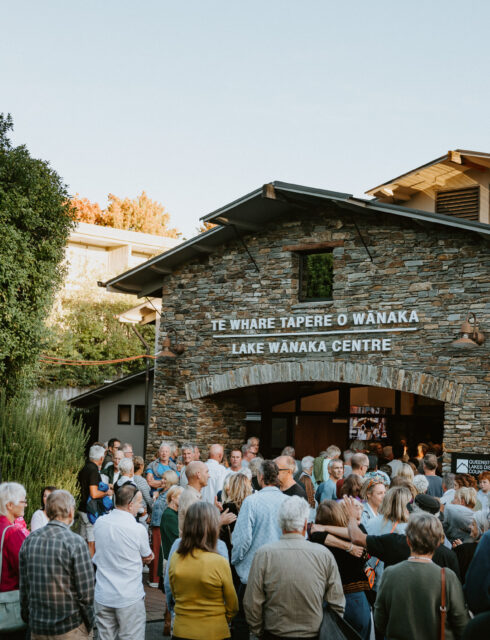Wilson & Dorset: Leading with Purpose
In a town known for doing things a little differently, Wilson & Dorset is walking the talk — not just in design, but in how it shows up for its people.
This small but mighty Wānaka business is redefining what it means to lead with purpose. Their inclusive hiring practices, born from a partnership with MINT Charitable Trust, are now part of the company’s DNA.
We asked co-founder Amanda Dorset to share how this values-led approach came to life and what it means for their team, their business, and the wider Wānaka community.
How did the partnership with MINT Charitable Trust come about?
It all began with our son, Louis, who has Down Syndrome and Autism. Alongside four other local families raising young people with intellectual disabilities, we came together to imagine something different — a future where our kids could thrive in their own community, not on the margins of it. That shared vision became MINT Charitable Trust in 2016.
At Wilson & Dorset, we saw a chance to bring our business into that story – not as a gesture of charity, but as a meaningful, reciprocal partnership. While MINT helped us get things started, they’re no longer involved in day-to-day operations. We employ our warehouse assistants Scott, Ewan, Emma, Zac, and Louis — as individuals. We’ve built direct relationships with them, and that’s been powerful on both sides.
How do your values show up in everyday business?
We lean into being “Perfectly Imperfect”. It means embracing honesty, uniqueness, and the messiness of being human. That shows up in how we communicate, encourage risk-taking, and learn from our mistakes.
We’re also big believers in connection- to place, people, and nature. Our sheepskin products are designed to bring people together through touch, comfort, and modular spaces. That same ethos carries through our team culture. We’re ambitious, but grounded. If someone needs to leave early to watch their kid’s game or just take a rest day, they can. That’s the kind of workplace we want to be.
What have been the tangible benefits of inclusive employment for your team and business?
Without exception, every team member has said it’s the best thing we’ve done. Having our warehouse assistants join us reshaped how we collaborate and communicate. It’s elevated our empathy, deepened our sense of team, and made our brand feel more real. Customers feel it too – it shifts the tone of the whole space.
And it’s created a real opportunity. We’ve seen Scott, Ewan, Emma, Louis, and Zac grow in confidence and skill. Louis wasn’t very focused on vacuuming when he started — he was more into hanging out with Shay or having a cup of tea with Harriett at smoko! Now he’s blasting through cushion-filling records and getting phone calls from our CEO to say well done.
What would you say to other businesses considering something similar?
Having the emotional and moral buy-in, along with the active support of senior leadership, was crucial—and in our case, having our CEO Lisa, a close friend of our family, fully understand our ‘why’ and actively champion the initiative within the organisation was vital to its success.
Start small, and start by listening. Inclusion isn’t a programme — it’s a relationship. You don’t need to have it all figured out. Just be willing.
Louis works two hours a week with us, plus short shifts at Sidekick Accounting, Cinema Paradiso and Aspiring Central. The sense of pride he feels is enormous. He’s not “Louis with Down Syndrome”, he’s Louis, the guy who works at Wilson & Dorset.
What’s been most powerful or surprising about this journey?
Sometimes it’s the quiet moments – watching a team member and a warehouse assistant develop their own rhythm, or seeing someone grow in confidence. We’ve even had impromptu concerts in the warehouse thanks to a speaker and some free microphones. Those moments shift a workplace. They shape culture.
How has this resonated with the wider community?
The feedback has been amazing! Handwritten notes, emails, even people popping in to say thank you. Customers feel good knowing their sheepskin cushion comes from a business that gives people a go.
It’s had ripple effects too. Some of our staff now volunteer at MINT events. Our warehouse crew have pursued other roles in the community. It’s changed how we all see meaningful work.
What’s next?
We’ve written a Blueprint of our learnings to help other businesses who might want to do something similar. We’re working with aligned businesses to create more supported employment pathways – not token roles, but real ones. We want to help build an ecosystem of opportunity here in Wānaka.
Interested in exploring inclusive employment?
Wilson & Dorset have created a practical Blueprint to help businesses take meaningful steps toward inclusive employment. Whether you’re ready to begin or simply want to explore what’s possible, this resource is a great place to start.
The team is also happy to share their experience, sometimes all it takes is a conversation.
Download the Blueprint here and stay connected for upcoming training sessions in this space through Lake Wānaka Tourism.
Key Takeaways for Businesses
- Inclusion strengthens culture.
Welcoming diverse team members reshapes how people collaborate, communicate, and connect. It builds empathy, trust, and a more connected workplace, benefiting all aspects of the business. - Purpose drives performance.
When values are lived, not just stated, they energise teams and elevate customer experience. Wilson & Dorset’s story shows that purpose and performance go hand in hand. - Start small.
You don’t need a big plan or perfect model to begin. Meaningful inclusion can start with one role, one relationship, or one conversation. As long as it’s grounded in respect and willingness to learn. - Support from the top matters.
When leaders actively back inclusion, it becomes embedded in everyday decisions, culture, and operations. Not just an add-on, but part of how the business runs. - Community impact builds business value.
Inclusive practices don’t just strengthen teams — they build goodwill, deepen trust, and show customers what your business stands for.








